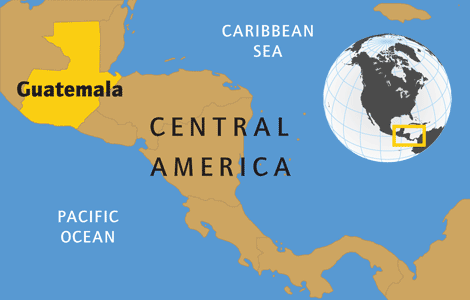

Outreach For World Hope
Outreach For World Hope



Before
The Lifeboat Program
The OWH Life Boat Program is a lifeline for children found in end stage starvation, but not yet selected by sponsors. When a child is found in code red malnutrition, he or she is placed in inpatient nutritional rehabilitation for 30 days. After recuperation, to prevent the return home to the
same conditions that caused the malnutrition, OWH photographs and profiles these children, providing monthly food supplies while sponsors are sought. The Life Boat program ensures that no child dies while awaiting sponsorship.
The Virtual Village Program
The “Virtual Village” is a community of families that live in 64 different villages scattered among the rural mountains of eastern Guatemala. They are the neediest of the needy, identified and receiving aid based on having had at least one child in code red malnutrition. Members of the Virtual Village have been chosen by sponsors and often even enjoy a personal visit by their sponsors during a team trip. They receive a monthly food supply, vitamins, medical care for the entire family, social services, and agricultural projects that promote independence.
The Road to Independence
We at OWH believe that although it is necessary to save the lives of children at imminent risk of starvation, it is equally important to provide opportunities and training which lead to self sufficiency. We cannot provide long term solutions to these problems without attacking the underlying causes and offering a means for overcoming obstacles. We are focusing on two specific keys to the future success of the families of this region, 1)opportunities for improvement in economic situation by way of food production, and 2) education for the children. We have made significant strides in both areas and are seeking funding for the expansion of programs that have already proven successful.
The research we have conducted over the past three years has lead to the identification of several seed varieties that have proven to be more hearty and drought tolerant than the traditional seeds used by local farmers, therefore producing higher yields. Particularly promising are the Llanero tomato, Arifi bean hybrid, and a cowpea variety which is similar to the black bean, but is rich in folic acid, therefore helping to prevent birth defects. We have implemented a program that is enabling families to feed themselves by growing these and other crops in small family gardens requiring a very small amount of land, by way of a simple drip irrigation system.
Bucket Kit Gardens and Hen Farming
Bucket kit gardens enable families to grow food all year in spite of drought conditions by way of a simple drip irrigationsystem. The gardens combined with egglaying hens and fruit trees make up the Nutritional Enhancement Triad (NET Program) which produces enough food to feed the families plus a surplus which can be sold, making the project self-sustaining. Egg-laying hens provide protein and calcium, which are crucial nutrients in the diets of children and pregnant or nursing women. Surplus eggs are sold to purchase additional hen feed.
Rabbits have proven to be a reliable source of protein as they are easy to care for and propagate quickly. The difficulty is getting the families to eat them rather than view them as pets. Coban Directors James and Joy Bentley hold training seminars and even cooking demonstrations offering rabbit samples in an effort to incorporate this valuable food source into the Guatemalan culture.
Education
Outreach for World Hope views education as an important means to independence and success. Since its inception in 2005, OWH has partnered with local government to improve the quality and availability of education for children in the region. OWH, with the help of visiting volunteer teams, has provided several tons of school supplies to under-equipped rural schools, supplied hundreds of desks to schools to replace rickety tables made of bricks and planks, expanded an overcrowded school that was holding classes in the kitchen and hallways, and provided scholarships to children wanting to continue on to a higher level of education than was available in their communities.
OWH, in partnership with the mayors of Camotan and Jocotan has donated many computers to facilitate the opening of several computer labs that will enable children to learn skills that will lead to employment.
Thank you!
OWH leadership wishes to extend its sincere gratitude to our family of supporters, sponsors, volunteers and granting foundations which make our work possible. The ministry’s many successes are the result of the love and generosity of many, and we consider it an honor to partner with you.
After: Isaac


Before
After: Darwin


Before
After: Fernanda









Our Mission
Outreach for World Hope (OWH) is a non-profit, tax deductible 501 (c)(3) approved, non-denominational Christian organization with the goal of improving the quality of life of the world's poor by providing humanitarian aid, hope, and compassion without regard to race, color, nationality or religious affiliation.
The Need
The Chiquimula region of Guatemala is located in the eastern part of the country known as “The Dry Corridor” due it is chronic shortage of rainfall resulting in drought conditions and long term famine. OWH has been working in the region since 2005 to save the lives of children found in the end stages of starvation, while at the same time providing pathways out of poverty, and hope for the future, through education and sustainable agriculture programs.